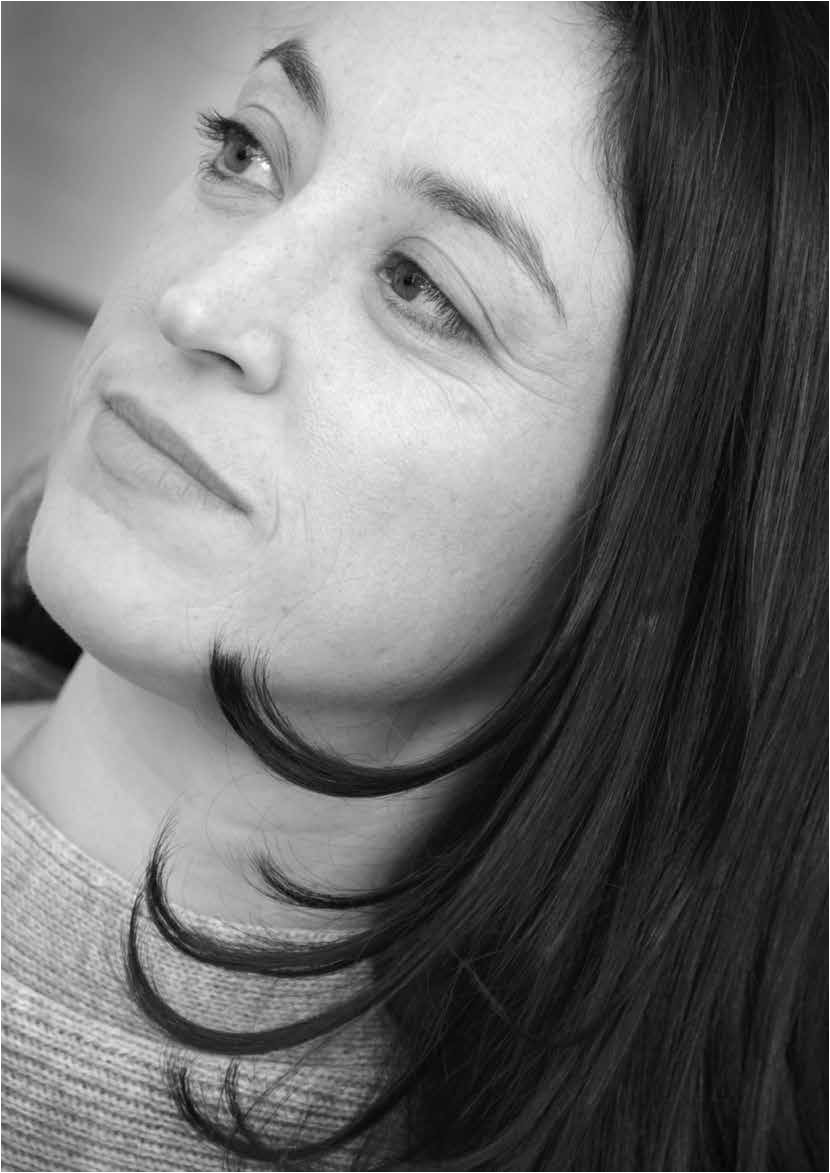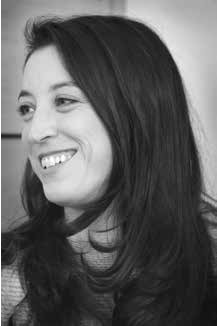Issue:

“It’s really important for democracy to have a healthy press, obviously, and that’s true now more than ever in the U.S.”
On her first trip to Japan, Abigail Leonard had a brush with fate. She was on a plane flying from Tokyo to Okinawa on March 11, 2011 when the massive earthquake struck Tohoku, and when Tepco’s nuclear power plant in Fukushima melted down what was supposed to be a two-week cultural exchange program for overseas journalists turned into an opportunity to report on the emerging nuclear crisis.
“I was here for something that was critical and historic and identity-forming for Japanese people and a lot of foreigners who were here,” says Leonard. Her interviews with hibakusha in Hiroshima about the Fukushima radiation problem, contrasting it with the effects from the wartime atomic bombing, ended up airing on “Need to Know,” a program on the U.S. Public Broadcasting System.
Born in Boston to a lawyer father and research scientist mother, Leonard went to school in Philadelphia. A desire to do “something meaningful” after graduating, led her to a job teaching junior high for two years in New Orleans.
She later returned to university study-ing science and environmental report-ing in a journalism program at New York University, before going back to work as a staff producer for “Now on PBS.” She also wrote for MSNBC’s “Countdown with Keith Olberman,” hosted by the acerbic popular sports and political commentator. “He was an amazing editor and writer and presenter,” says Leonard. “I learned from him how to communicate ideas really effectively how that it’s more of an argument, building a case rather than telling a narrative.”
Leonard continued to expand her parameters, writing for “The War Room” with Jennifer Granholm, and working as a producer for CNN, ABC and Al Jazeera America, where she had the opportunity to research and produce impactful material. “We did a story on privatizing prison healthcare in Arizona that brought a lot of attention to an issue that people don’t normally care about,” says Leonard. “What we uncovered showed they were making a profit while driving the costs down as low as possible.
THE PROGRAM WAS A brutal exposé. One female prisoner interviewed by Leonard claimed that doctors had left her with an open wound from a C-section and, when it didn’t heal properly, packed it with kitchen sugar from McDonald’s. Although Leonard’s Al Jazeera article included a dismissal of the claims from a state lawmaker who drafted the priva-tization legislation, allegations of mis-treatment were also raised in an ACLU lawsuit that claimed prisoners were suffering “pain, amputation, disfigurement and death.” Media scrutiny of prisoner care raised awareness, and reforms were made.

“It’s really important for democracy to have a healthy press, obviously, and that’s true now more than ever in the U.S., ” says Leonard, referring to the media fallout in the aftermath of the 2016 presidential election. She believes that funding is a key part of the disconnect between mainstream media and voters who felt marginalized and distrustful toward media like the New York Times. And that it takes money to assign reporters from power centers in New York and Washington into the heartland to do journalism than can make a difference to people. “I worked in the U.S. for 10 years, and you could see that good investigative journalism wasn’t getting funded,” she says. “And how do you even start to deal with fake news?”
She believes that it’s something that Facebook and Google are going to have to grapple with. “But the good thing that could come out of the election is that some thought is now being given into how to do better journalism and how important it is to have a free and open press. People are recognizing that and people are subscribing [to such outlets].
“It’s a critical time in American media, particularly at a time where you have a president like Donald Trump, who himself is spreading disinformation and vilifying the press. So it’s a tough time to be away from the U.S. but for now I’m in Japan.”
LEONARD IS NOW FOCUSED on working as a freelance journalist in Tokyo after her husband was sent here to open a Tokyo office for his company in 2015. She operates out of a co-working space near Shibuya but visits the FCCJ for press conferences and PAC meetings. While doing radio stories for the BBC, she’s also been writing print pieces for the Washington Post, Newsweek, Popular Science, Vox, the New York Daily News and Newsday. She’s also written for OZY and NPR. She dislikes wacky Japan stories, the grist for many a freelancer’s mill, and is especially interested in women’s and social issues that aren’t being covered. One example of how she matches her interests to her work is a Newsweek story she did on how Japan’s declining population could lead to restrictions on women’s access to reproductive care.
“There are so many stories out there that need to be told. Personally it’s been an amazing journey. I’ve met some really incredible people and hopefully I could change things for the better in some small way.”
Tim Hornyak is a freelance writer who has worked for IDG News, CNET News, Lonely Planet and other media. He is the author of Loving the Machine: The Art and Science of Japanese Robots.

